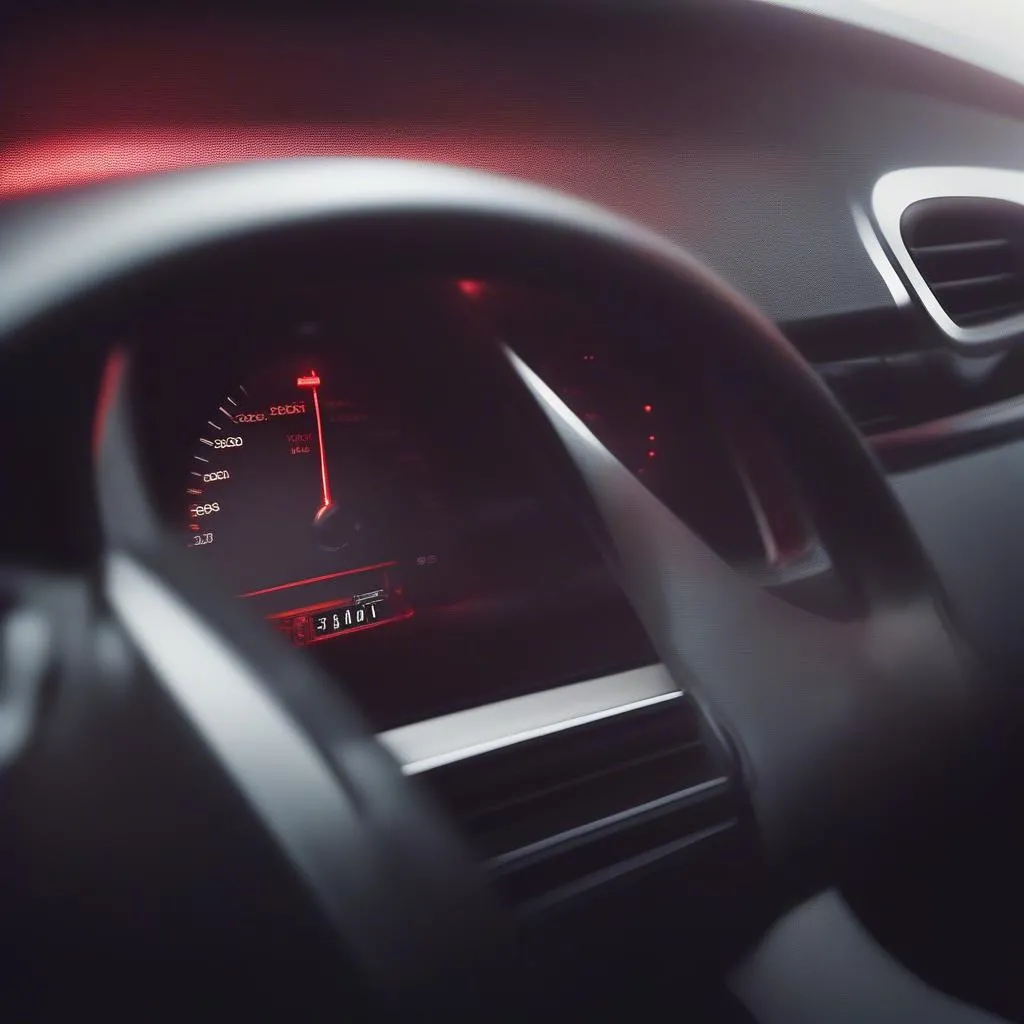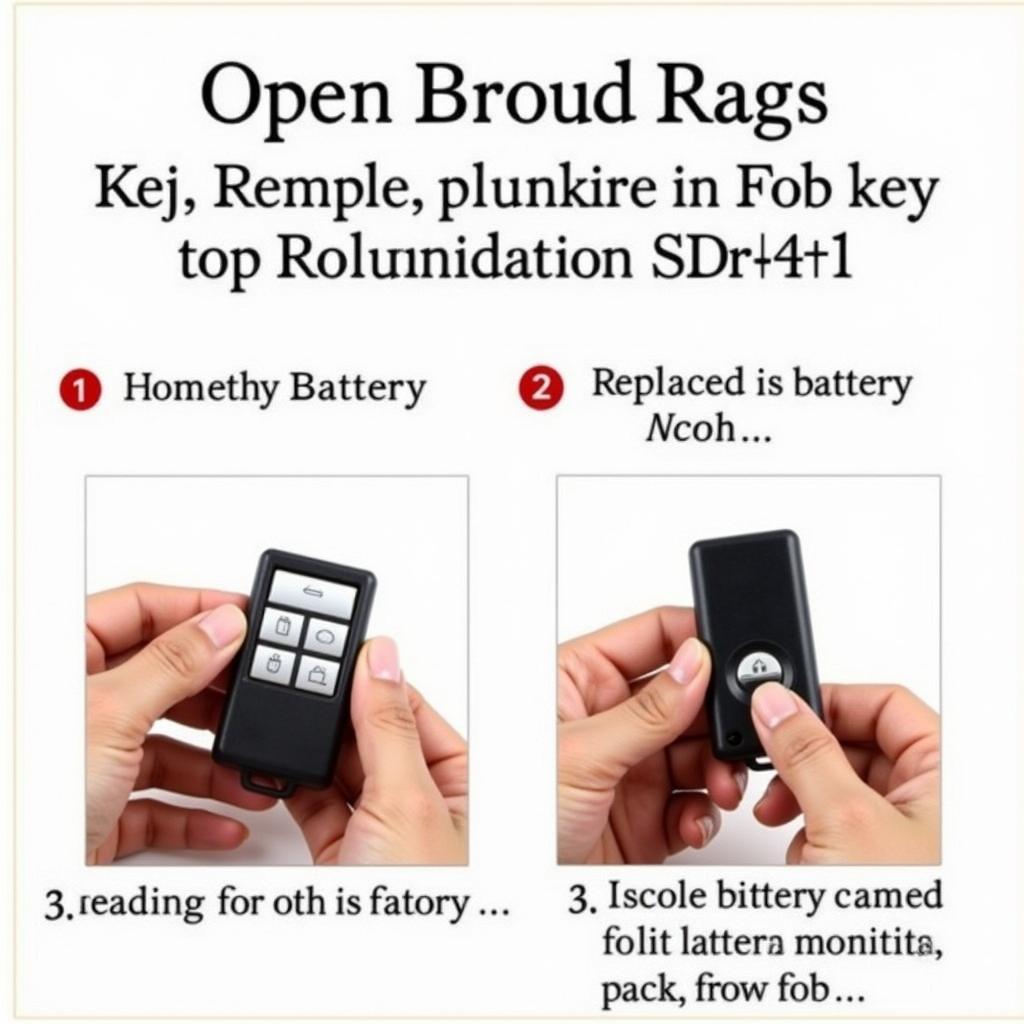The brake fluid warning light is an essential safety feature in your Nissan Juke. It alerts you to a potential issue with your braking system that requires immediate attention. Ignoring this warning light could lead to reduced braking performance, increasing the risk of an accident. This comprehensive guide will delve into the common causes of the Nissan Juke brake fluid warning light, how to diagnose the problem, and potential solutions.
Understanding Your Nissan Juke’s Brake Fluid Warning Light
The brake fluid warning light, often symbolized by a circle with an exclamation mark (!) surrounded by parentheses and wavy lines, illuminates on your dashboard when the brake fluid level drops below a safe threshold. This drop in fluid level usually signifies a leak in the system or worn-out brake pads.
Common Causes of a Nissan Juke Brake Fluid Warning Light
Several factors can trigger the brake fluid warning light in your Nissan Juke. Here are the most common:
- Brake Fluid Leak: A leak in your brake lines, calipers, wheel cylinders, or master cylinder is the most common culprit behind a drop in brake fluid level. This leak could stem from wear and tear, corrosion, or damage to these components.
- Worn Brake Pads: As your brake pads wear down, the brake caliper pistons need to extend further to engage the rotors. This extension draws more brake fluid from the reservoir, eventually triggering the warning light.
- Faulty Brake Master Cylinder: The brake master cylinder plays a crucial role in pressurizing the brake fluid. If the master cylinder seals wear out or become damaged, it can cause internal leaks, leading to a drop in brake fluid level and triggering the warning light.
- Issues with the Brake Fluid Level Sensor: While less common, a malfunctioning brake fluid level sensor can also trigger the warning light. This malfunction could be due to a faulty sensor or a wiring issue.
Diagnosing the Problem: What to Do When the Warning Light Comes On
If your Nissan Juke’s brake fluid warning light illuminates, it’s crucial to address the issue promptly. Here’s a step-by-step guide on what to do:
- Safely Pull Over: Find a safe location to park your vehicle away from traffic.
- Check the Brake Fluid Level: Locate the brake fluid reservoir under the hood (refer to your owner’s manual for its exact location). Carefully open the reservoir cap and visually inspect the fluid level.
- Look for Leaks: If the brake fluid level is low, visually inspect the area around the master cylinder, brake lines, and each wheel well for any signs of leaks. Look for wet spots, drips, or puddles of brake fluid.
- Assess the Brake Pads: If you suspect worn brake pads, it’s recommended to have them inspected by a qualified mechanic.
Addressing the Problem: Potential Solutions
The solution to a Nissan Juke brake fluid warning light depends on the underlying cause:
- Repairing Leaks: If you’ve identified a leak, it’s crucial to have it repaired by a qualified mechanic as soon as possible. Repairing a leak typically involves replacing the damaged component, such as a brake line, caliper, or wheel cylinder.
- Replacing Brake Pads: Worn brake pads require immediate replacement. Continuing to drive with worn pads can damage your rotors and significantly compromise your braking performance.
- Addressing a Faulty Brake Master Cylinder: A malfunctioning brake master cylinder often requires replacement. This procedure is best handled by a qualified mechanic due to the complexity of the braking system.
- Resolving Brake Fluid Level Sensor Issues: If you suspect a problem with the brake fluid level sensor, a mechanic can diagnose the issue and recommend either repairing or replacing the sensor.
Importance of Professional Diagnosis and Repair
While checking the brake fluid level is a task you can do yourself, it’s vital to remember that the braking system is complex and crucial for your safety. Therefore, it’s always best to consult a qualified mechanic for diagnosis and repair of any brake-related issues.
Preventing Future Issues: Brake System Maintenance Tips
Regular maintenance can help prevent brake fluid warning light issues and keep your Nissan Juke’s braking system in optimal condition:
- Regular Brake Fluid Flushes: Consult your owner’s manual for the recommended brake fluid flush intervals. Regular flushes help remove moisture and contaminants that can affect braking performance.
- Timely Brake Pad Replacement: Adhering to the recommended brake pad replacement schedule ensures optimal braking performance and prevents damage to other braking components.
- Inspecting Brake Lines and Hoses: Regular visual inspections of your brake lines and hoses can help identify potential leaks early on.
nissan juke brake pad warning light
Conclusion
A glowing brake fluid warning light in your Nissan Juke should never be ignored. It signifies a potential issue with your braking system that requires immediate attention. By understanding the common causes, knowing how to diagnose the problem, and seeking professional help when needed, you can ensure your Nissan Juke remains safe and reliable on the road.
Frequently Asked Questions
1. Can I drive my Nissan Juke with the brake fluid warning light on?
It’s strongly advised against driving with the brake fluid warning light illuminated. Continuing to drive could lead to brake failure, putting you and others at risk.
2. How often should I check my Nissan Juke’s brake fluid level?
It’s recommended to check your brake fluid level at least once a month and before any long journeys.
3. How much does it cost to fix a Nissan Juke brake fluid leak?
The cost of repair varies depending on the leak’s location and the damaged component. It’s best to get a quote from a qualified mechanic.
4. Can I add brake fluid to my Nissan Juke myself?
While it’s possible to top up your brake fluid, it’s crucial to use the correct type of brake fluid specified in your owner’s manual. If you’re uncomfortable doing this, it’s best to consult a mechanic.
5. How long can I drive with worn brake pads?
Driving with worn brake pads is extremely dangerous. As soon as you suspect worn pads, have them inspected and replaced immediately.
6. Can a faulty brake fluid reservoir cap trigger the warning light?
Yes, a damaged or loose brake fluid reservoir cap can cause a drop in pressure and potentially trigger the warning light.
7. What type of brake fluid does my Nissan Juke use?
Refer to your owner’s manual for the recommended brake fluid type for your specific Nissan Juke model.


